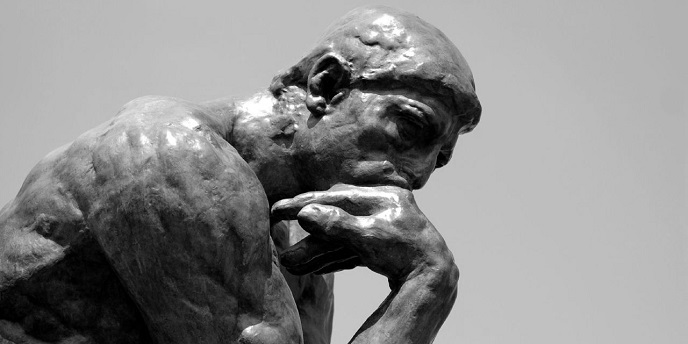Some thoughts about the existential philosophy /last part/
godflesh·@godflesh·
0.000 HBDSome thoughts about the existential philosophy /last part/
If we want to find a solution to this paradox, it can be sought in the direction of two thoughts: if the perceived and comprehended knowledge presupposes a "what", a perceived essence, then everything unnatural, purely existent would escape the possibility of basic knowledge and, on the other hand, that every sentient knowledge points to something that is not self-explanatory, and to which the question asked about what "can not only be satisfied with an answer, but is meaningless. To take "nothing" - it is only a linguistic expression of the principle refusal of any vision. In "I" we experience an unambiguous security, a being that escapes from every sighted knowledge. God could be known - a beatific knowledge, but not a knowledge of the essence - only by one being who experiences God as he experiences his "self": by God Himself.  [image source](https://studybreaks.com/college/in-defense-of-uselessness-why-i-am-a-philosophy-major/) # The knowledge of the existing Here, with regard to the knowledge of the present one, Heidegger joins a pragmatic view that knowledge is meaningful co-ordination, conceptual identification from a practical point of view with a practical purpose, all of which is done and guaranteed in action. Knowledge itself is "an action, not an action based on previously seen knowledge. Every knowledge encompasses one identity in a multilateral, but it is not a mature and perceived identity; it is realized in practical action as thought and realized according to the intended purpose. Thus, if Heidegger reaches Kant and, above all, Husserl in terms of transcendentalism in a pragmatism, he takes away the fundamental importance that language phenomenology renders. Thus, Heidegger takes the soil of the antinomical realism of language. Language becomes an action, not a footprint of a vision - that is, we can use it for that in this case as well. Phenomenologically pure discourse must once again "melt" the "molded" language-form knowledge of the world and form new, purely discriminatory concepts. Here is the opposite that Heidegger has to adopt a philosophy of pure experience that, with his analysis of the subject's knowledge, should go even further. There is everything in existence and what is at hand. But the availability presupposes the person to whom the world is at hand and who is here because of this "bundle". Man is the one who "uses" the world, the presence of the world points to and speaks of its existence without which there is no "skeleton of the meaning" that forms the conditions for the possibility of the world. The world is a surrounding human world.
👍 apartphilosopher, darkdruid, godflesh, catchawhale, sam7, cifer, merlin7, fanta-steem, jerrybanfield, steem.create, curation.trail, bukiland, xrp.trail, mangos, ivach13, uglyogreh, snwolak, charlie777pt, arcange, rarebooksleuth, raphaelle, rishi-sayz, phusionphil, pipokinha, funnystuff, baqir, dfruit, santinhos, tmayd, jorge-caceres, boostar, hozn4ukhlytriwc, maximdraws, aasanka,